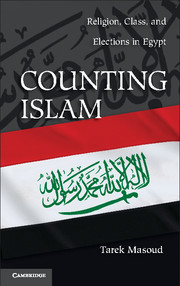Book contents
- Frontmatter
- Contents
- List of Figures
- List of Tables
- Preface
- Acknowledgments
- A Note on Transliteration
- Introduction: An Islamist Monopoly
- 1 Explaining Islamist Dominion
- I ISLAMISTS AND THEIR RIVALS IN AUTHORITARIAN ELECTIONS
- II ISLAMISTS AND THEIR RIVALS AFTER THE “ARAB SPRING”
- 5 God, Mammon, and Transition
- 6 Islam's Organizational Advantage? Or, Why Voters Think Islamists Are Leftists
- 7 Connections, Not Creed: Further Evidence from Egypt and Beyond
- 8 Conclusion
- Bibliography
- Index
5 - God, Mammon, and Transition
Published online by Cambridge University Press: 05 July 2014
- Frontmatter
- Contents
- List of Figures
- List of Tables
- Preface
- Acknowledgments
- A Note on Transliteration
- Introduction: An Islamist Monopoly
- 1 Explaining Islamist Dominion
- I ISLAMISTS AND THEIR RIVALS IN AUTHORITARIAN ELECTIONS
- II ISLAMISTS AND THEIR RIVALS AFTER THE “ARAB SPRING”
- 5 God, Mammon, and Transition
- 6 Islam's Organizational Advantage? Or, Why Voters Think Islamists Are Leftists
- 7 Connections, Not Creed: Further Evidence from Egypt and Beyond
- 8 Conclusion
- Bibliography
- Index
Summary
The 2010 parliamentary election – the last of seven such contests held during Mubarak's reign – by all accounts represented a bitter regression in Egypt's hitherto halting, eminently modest democratic “progress.” The National Democratic Party (NDP) captured 473 of 504 elected seats, dominating the legislature to an extent not seen since the opposition-wide election boycott of 1990. As the opposition reeled, the ruling party congratulated itself and its “organizational secretary,” a steel magnate named Ahmed Ezz, for engineering such a stunning victory. Shortly after the conclusion of the elections, Ezz penned a series of articles in the state-owned newspaper, al-Ahrām, in which he declared that his party had won because it had “made a difference in the lives of the people.” In a widely mocked (but, as far as this author can ascertain, empirically correct) paragraph, the magnate-cum-party leader – described unironically in his author biography as “the man behind the sweeping win by the ruling party in the recent parliamentary elections” – explained
Overall, the standard of living for the Egyptian middle class has risen, as witnessed by 1.6 million students in private schools and their numbers are rising by 20 per cent a year. One million Egyptian bought new cars over the past five years (80 per cent of these cars cost less than LE 75,000), and permits for residential buildings rose by more than 10 per cent in 2009 alone. There are 39 private, joint and foreign banks in Egypt with more than 3,400 branches across the country. These banks, along with businesses in the fields of communications, computers, engineering consultancy and construction, provide thousands of job opportunities for the middle class, which means an increase in income.
- Type
- Chapter
- Information
- Counting IslamReligion, Class, and Elections in Egypt, pp. 123 - 154Publisher: Cambridge University PressPrint publication year: 2014



